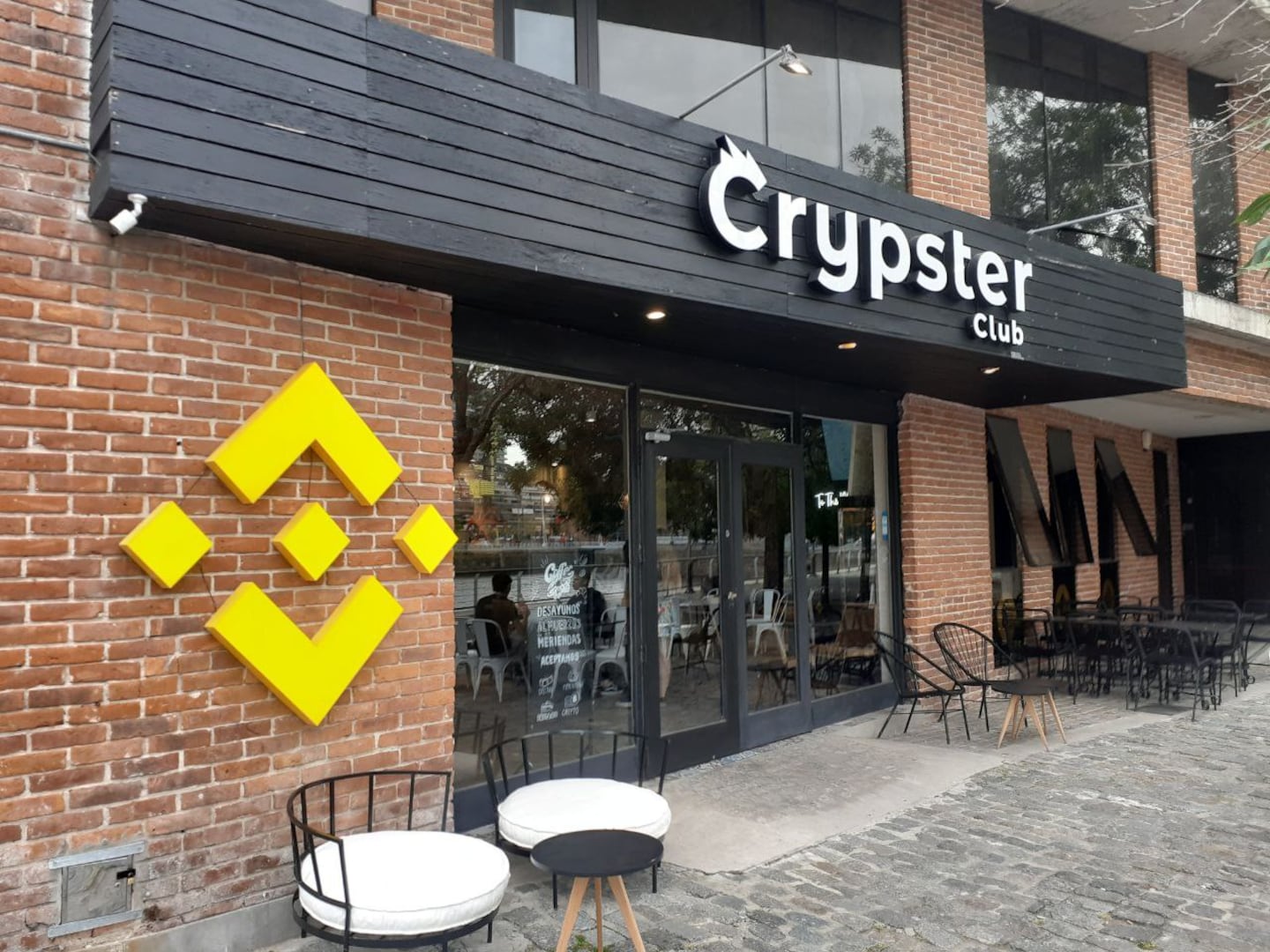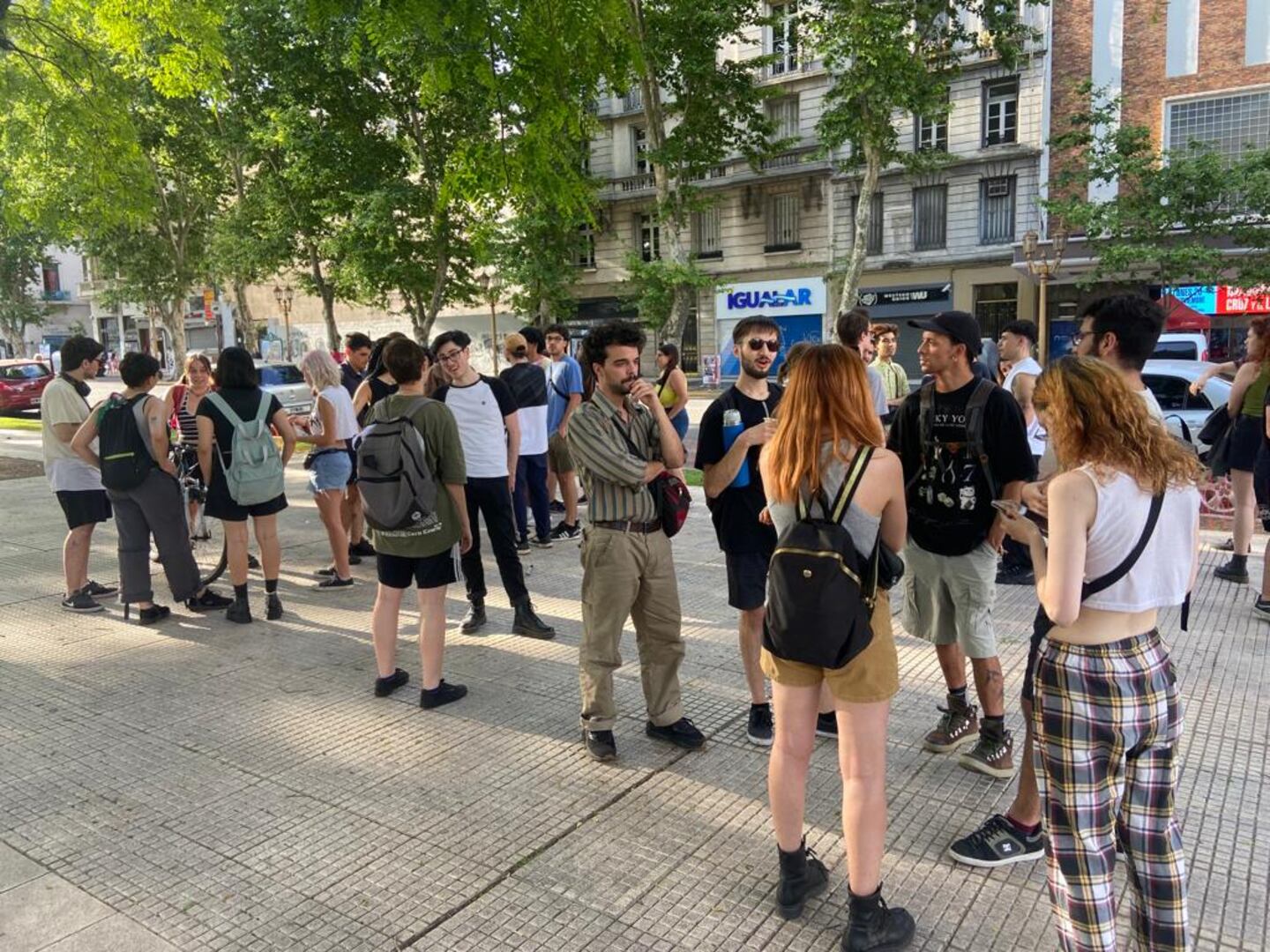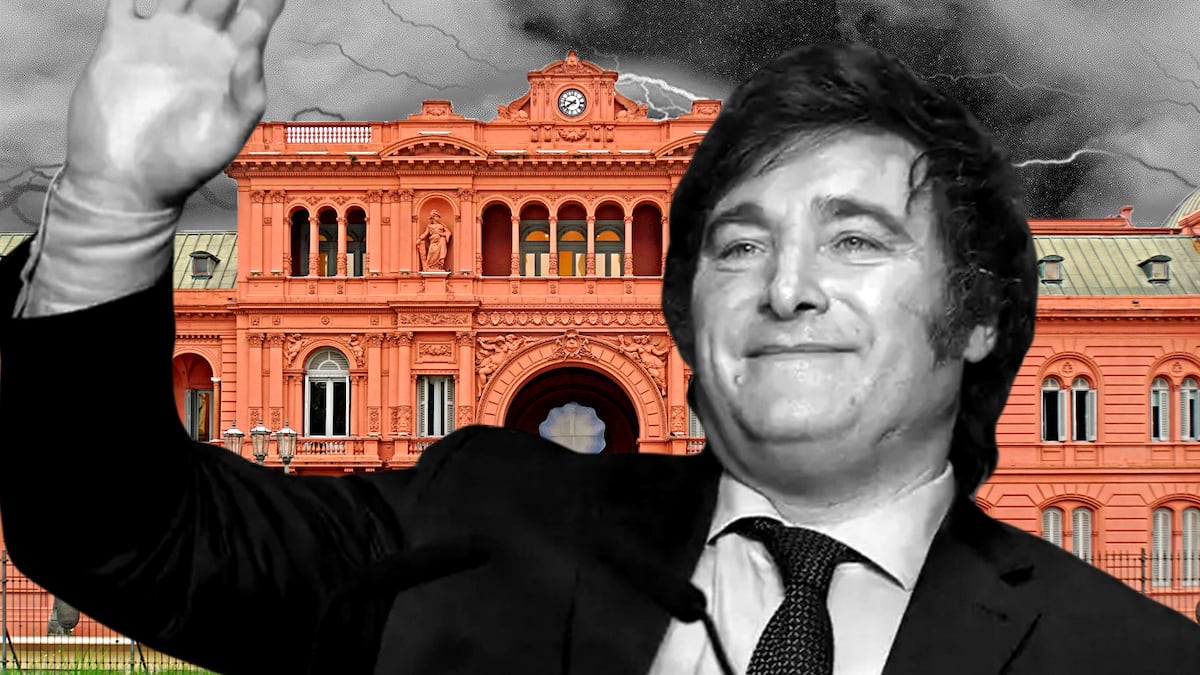- President-elect Milei vowed to shutter Argentina’s central bank and dollarise the economy.
- We spoke with Buenos Aires locals who expressed doubt crypto is a fitting solution for the nation’s chronic underperformance.
- Crypto would be a move ‘from instability to instability,’ one student said.
Crypto supporters around the world rejoiced when libertarian economist Javier Milei won a shocking victory in Argentina’s presidential election on Sunday.
“This is the Bitcoin Reformation, we are living it!” Bitcoin promoter Tuur Demeester posted on X to his 260,000 followers.
Milei has praised Bitcoin, vowed to shutter Argentina’s central bank, dollarise the economy, and slash government bureaucracy. Diana Mondino, Milei’s likely pick for minister of foreign affairs, has said that the country “can become a Bitcoin haven.”
But in the eyes of many young Argentinians I spoke with in Buenos Aires this week, Milei’s monetary programme will barely make a dent in the fundamental weaknesses of an economy that has been whipsawed by hyperinflation and a chronic lack of growth for decades.
“Using crypto as a solution is like going from instability to instability,” said Santiago, a marketing student at the Universidad Católica Argentina, as he sipped his coffee in Crypster Club, a café located in Puerto Madero, a posh neighbourhood in Buenos Aires.
Vitalik on the wall
If there was anywhere Milei’s embrace of Bitcoin should have been welcomed, it’s this place.
The café has a crypto ATM machine, a Bored Ape painting, a Bored Ape bust, a half-dozen flatscreens tracking the price of various cryptocurrencies, some crypto merch, and a seemingly endless number of Binance logos.
A photo of Vitalik Buterin posing with the Bored Ape painting hangs on the wall — right next to the painting itself.
Still, Santiago wasn’t the only customer underwhelmed by the incoming president’s crush on crypto.
Santiago said there are so many problems with the current system that Milei’s nebulous crypto plans are unlikely to provide relief to everyday people. Allowing the peso to “freely compete” with other currencies is one thing; saying, like Demeester, that Bitcoin can offer a refuge from chaos to South America’s second-biggest economy is quite another.
While he has used cryptocurrencies in the past, Santiago said that he keeps all of his savings in physical dollars, not Bitcoin or stablecoins. His family and friends do the same thing.
‘If you’re using Bitcoin, it’s because you’re already stable. Otherwise crypto is just another preoccupation.’
— Santiago, a university student in Argentina
“Working class people don’t invest,” he told me. “If you’re using Bitcoin, it’s because you’re already stable. Otherwise crypto is just another preoccupation.”
Another UCA student, Josué, agreed: “The economy is so bad, you don’t have the possibility to invest in anything.”
The students were uncomfortable with sharing their last names because of Milei’s controversial image on campus.
185% inflation rate
Argentina’s perennial economic woes ploughed the ground for the radical, wild-haired libertarian to secure his long-shot victory over Sergio Massa, the minister of the economy.
The Banco Central de la República Argentina predicts the peso will hit a 185% inflation next month. The nation’s gross domestic product is shrinking at an annualised rate of 2.5%, according to the International Monetary Fund.
And the malaise that has gripped a proud nation of 46 million people since the 1990s has sapped the confidence of investors and consumers alike.
The US dollar offers one way to preserve wealth. But Argentinians are not allowed to exchange more than $200 worth of pesos at commercial banks each month.
Many Argentinians turn to the informal currency market where they can buy what they call “blue dollars” — US greenbacks — for almost three times the official rate.
“The blue dollar goes up, it goes down, it goes up again,” Santiago said, referring to the black market exchange rate. “Instability is part of the day-to-day.” The blue dollar is trading for roughly 1,050 pesos — about 13% more expensive than before Milei’s electoral victory.
Stablecoins surging
Households and businesses in other nations in similar straits have been increasingly turning to dollar-pegged stablecoins such as Tether’s USDT. Crypto use has surged 9% in Nigeria over the last two years, DL News reported in October.
And in Lebanon, stablecoin brokers have built an ecosystem to help struggling families and companies weather a collapse in the lira.
In Argentina, there were $85 billion in crypto transactions from January to July, making it the leader in transaction volume in Latin America, according to Chainalysis.
Back in the Crypster Club, Matias, a friend of Josué who regularly trades crypto, said he couldn’t think of anything Milei could do to make things better or worse for retail crypto users in Argentina — except potentially put some kind of tax on digital assets.

Milei’s advocacy of Bitcoin and pledge to abolish the central bank evokes El Salvador’s experiment with the top cryptocurrency. Under President Nayib Bukele, the Central American nation made Bitcoin legal tender in September 2021 and gave it the same status as the US dollar, the country’s official currency.
The Salvadoran Treasury bought 2,381 Bitcoins in the following 14 months.
The government also shipped an official Bitcoin wallet called Chivo to ordinary citizens. Salvadorans are offered $30 in Bitcoin when they sign up. By the summer of 2022, more than 60% of recipients had yet to make a transaction, according to the National Bureau of Economic Research.
A Salvadoran friend told me this summer that she’d used the money to splurge, and hadn’t opened the app since.
Situated on the UCA campus, the majority of Crypster Club’s clientele doesn’t seem to have a huge interest in Bitcoin. Its staff is likewise uninitiated.
After a while, I realised the only people in the café who seemed into crypto were foreigners. A Bolivian tourist excitedly told me he’d already made back all of the money he’d lost during the bear market. His wife nodded along, smiling.
Student protest
On Monday, I stumbled across a group of film students looking to organise a protest in front of Congress. There were about 30 of them, all in their early twenties.
The group was hardly visible on Plaza del Congreso, which along with Plaza Mariano Moreno and Plaza Lorea constitutes a three-hectare open space east of the Congress building.

The students belonged to ENERC, the Escuela Nacional de Experimentación y Realización Cinematográfica. They were disappointed Milei won the election. When I asked why, one of them told me: “Well, he’s a dictator.”
Milei has made a series of bellicose statements. In one viral video, Milei said: “You can’t give shit leftists an inch… If you think differently [from them], they will kill you.”
Milei also called Pope Francis — himself an Argentinian — profane names and has accused him of “preaching communism to the world.” Strong words in a country in which Roman Catholics comprise almost 63% of the population.
Cutting hospital funding
Milei’s win means ENERC will likely lose some of its subsidies, the students told me. Another big concern was Milei’s plan to privatise healthcare. Milei’s complex health-care platform involves cutting hospital funding and deregulating the medical insurance system.
They did not mention the economy, or the crushing inflation rate. Or Bitcoin.
At least one student group will be actively protesting in front of Congress this week, they said, but they were hoping to organise a bigger demonstration — which was why they’d all gathered together in the first place.
Necessary legislative support
Still, in the week since the election, Buenos Aires has been quiet.
Nobody is celebrating, but nobody is crying either. On Monday, walking along Avenida Rivadavia — one of the city’s main arteries, the third-longest street in the world — all you could hear was the chatter of people in the cafes, the cars cruising along, the occasional reggaeton coming out of a store.
For all of Milei’s bombast, it’s unclear whether he will have the necessary legislative support to pass his most controversial policies. His party, La Libertad Avanzada, will have 37 seats out of 257 in the Chamber of Deputies, and only eight out of 72 seats in the Senate.
Even his alliance with former Argentine President Mauricio Macri’s party, Juntos por el Cambio, will not be enough for him to reach a quorum.
Political analysts question whether voters truly want his radical programme, or simply voted for him because they are so desperate to change Argentina’s sclerotic political system.
Nothing ever changes
“Milei’s conservative proposals — including deregulating the sale of organs, banning abortions, supporting the right to bear arms, and the privatisation of local soccer clubs — do not actually reflect the average wishes of many of those who voted for him,” Arianna Kohan, an Argentinian election analyst, wrote on Monday.
“Milei’s victory shows a resounding rejection of [the status-quo], rather than actual support for the candidate himself,” she said.
Spending time in the Argentine capital, I pondered a local saying: “Argentina is a country that, if you leave for 20 days, when you come back everything has changed, but if you leave for 20 years, when you come back nothing has changed.”
That may be why a restaurant television switched channels to the president-elect, and nobody raised their heads to pay attention.
Got a tip about Argentina, crypto, and Milei? Tom Carreras is reporting from Buenos Aires right now. You can reach him at tcarreras@dlnews.com
